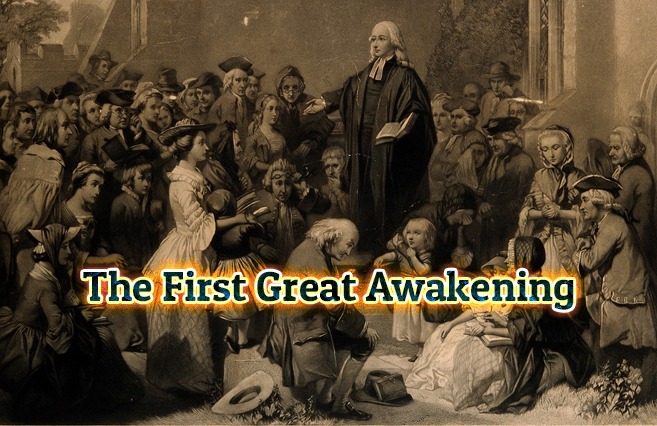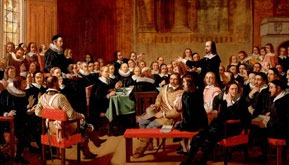The First Great Awakening was one of two great religious revivals that swept across the American colonies. The Awakening, despite being the most well known, was only a smaller section of a revival sweeping across many parts of Europe. This revival mainly took place in England, Scotland, and Germany. The Awakening can be defined by the focus of shifting to trusting in Biblical Truth, rather than flawed human reasoning.
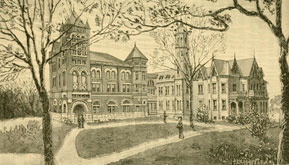
This movement quickly spread to New England in the 1740s and the congregations of Puritans and the Baptists living there. At the hands of the trained clergymen, revivals were being held all throughout the northern and middle colonies. This time became characterized by emotionally packed sermons delivered by extremely enthusiastic and intense pastors. Easily the most famous of these pastors, Jonathan Edwards, gave electrifying sermons regarding the terrors of hell and the natural evil of human nature. His most famous sermon, “Sinners in the Hands of an Angry God”, still moves people to revival today due to his description of sinners as a spider suspended over a pit of fiery brimstone convicting people to action.
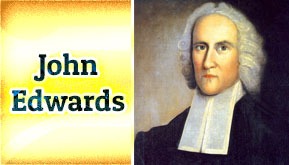
Another famous pastor of the Awakening during this time was George Whitefield, whose influence was a big part of the growing momentum of the revival. Whitefield is most famous for how he reformed the Church of England with the help of John and Charles Wesley. The reform caused the founding of the Methodist church. Whitefield often traveled to America to preach, his sermons attracting the attention of such numbers that he was often forced to preach outside. Whitefield made popular the style of preaching often regarded in concert with the First Great Awakening. This style was to turn the sermon into a performance through dramatic gestures, weeping, and threats against the audience of punishment for their sins. His style was imitated by many other pastors around the colonies.
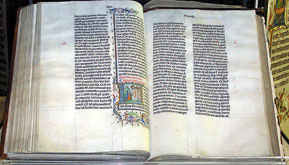
The First Great Awakening was a very polarizing event for the world, this effect felt most acutely in America. Many different denominations gained members, whether from their respective approval or disapproval of the Awakening. Regardless of the opinions of the people during the time, it remains obvious that without the First Great Awakening, America would not have the strong religious underpinnings that remain in our country.

